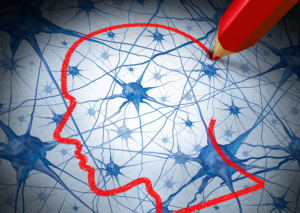The New Developments in Alzheimer’s Research That May Surprise You
 If there is one constant thing in the race to solve the puzzle of Alzheimer’s, it is change. It appears as though any time researchers start to get a grasp on one piece of information, new information shifts their hypotheses in an alternative direction. That is most certainly the situation with the amazing new developments in Alzheimer’s research.
If there is one constant thing in the race to solve the puzzle of Alzheimer’s, it is change. It appears as though any time researchers start to get a grasp on one piece of information, new information shifts their hypotheses in an alternative direction. That is most certainly the situation with the amazing new developments in Alzheimer’s research.
For the first time ever, scientists from the University of Cambridge have been in a position to study human data as opposed to animal models. Their findings point to an origin of the disease in several regions of the brain, instead of a single location that sets off a chain reaction, as previously surmised from scientific studies of the brains of mice.
Dr. Georg Meisl of Cambridge’s Yusuf Hamied Department of Chemistry explains, “The thinking had been that Alzheimer’s develops in a way that’s similar to many cancers: the aggregates form in one region and then spread through the brain. But instead, we found that when Alzheimer’s starts there are already aggregates in multiple regions of the brain, and so trying to stop the spread between regions will do little to slow the disease.”
Because of this, the disease’s progression is predicated upon how fast cells are destroyed within these different regions. This new insight will undoubtedly be extremely beneficial in the advancement of treatment plans that target the processes that happen at the beginning of Alzheimer’s. Further good news: the replication of the tau and amyloid beta proteins responsible for Alzheimer’s happens slowly, and our neurons are already evolving to stop the aggregation of these proteins. Hopefully soon, science and biology will work together to help the millions of individuals impacted by Alzheimer’s.
The next step will likely be for researchers to further investigate the processes involved in the earliest stages associated with the disease, while extending research to other health conditions, for example, progressive supranuclear palsy and traumatic brain injury. The data obtained could even help provide clues into more effective treatments for other common neurodegenerative diseases, such as Parkinson’s disease.
If someone you love is battling Alzheimer’s or another form of dementia, reach out to our dementia care team for helpful information and assistance with innovative, skilled, hands-on caregiving support. Our creative, patient, and caring methods alleviate the strain of challenging behaviors including:
- Sundowning
- Wandering
- Aggression
- Agitation
- Frustration
- Confusion
- Disorientation
- And many others
Give us a call any time at 954-486-6440, and we can discuss solutions to help with the particular challenges a senior you love is facing. You’re never alone with Responsive Home Care’s trained experts by your side! To learn more about our dementia care in Hollywood, FL and the surrounding areas, contact us today.
